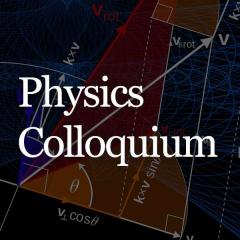Professor Nicholas Kaiser "The Effect of Gravitational Lensing on Cosmological Parameter Estimation" 25/02/2019 1:00pm
This Monday, 25th February, the UQ Physics Colloquium is hosting Nicholas Kaiser from the École normale supérieure. Prof. Kaiser will talk about conceptual development of the theory of gravitational lensing.
Everyone is welcome to join.
Abstract: A long-standing question in cosmology is whether gravitational lensing by structure biases the apparent distance or the mean flux density of sources. Interest in this has been rekindled by recent calculations in 2nd order relativistic perturbation theory which suggests significant implications for cosmological parameter estimation from both supernovae and the microwave background. In this talk I shall first review the somewhat confusing history of the subject, going back to the early ’60s and including both Weinberg’s 1976 argument that there should be no effect on grounds of flux conservation and the general relativistic “focusing theorem” of the ’80s that seems to contradict this and which foreshadows the more recent results. I then describe recent work with John Peacock where we have shown how these conflicts are resolved. Regarding Weinberg, we show that there is a loophole in his argument, and lensing does in fact bias the apparent distance, but it is a very small effect. We show that the apparent intrinsic tendency for the structure to cause the focusing of light rays that emerge from the focusing theorem is a statistical rather than physical effects.
About Physics colloquium
The Physics Colloquium series hosts a range of speakers from Australia and abroad. The series explores a variety of topics and everyone is welcome to come along. The seminars are open so there is no need to register your attendance.
If you would like to sign up for colloquium announcement emails, you can join the mailing list by sending a blank email to:
- For UQ email addresses: physics-colloquium-others-join@lists.science.uq.edu.au
- For non-UQ email addresses: physics-announce-external-join@lists.science.uq.edu.au
(Note: if you receive physics-all emails, you should already receive these and don't need to sign up again).

